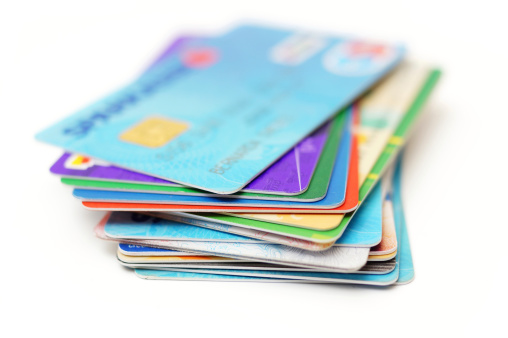By Rehan Ijaz
Anyone who has ever opened a credit card account has received a booklet full of fine print along with the card. Most of us just file the booklet away without even a cursory glance, even though it contains important information about your card — information that could eventually cost you more money.
And as a business owner, you want to be sure that you aren’t paying more than you have to for your credit card accounts. Even seemingly small fees can add up to big money over time, taking a significant bite out of your bottom line. Since the fine print is often packed with legalese, and not the most scintillating reading material, we’ve identified a few of the clauses that you want to look out for.
Interest Rate Changes
Very few credit cards offer a fixed interest rate for as long as you own the card. Most cards have variable rates tied to the prime interest rate, meaning that it can fluctuate — usually going up when the prime rate goes up. However, this isn’t the only change that you need to watch for. The fine print will also outline situations in which your interest rate will revert to a default rate, which may be as high as 29 percent or more. Late payments, going over your limit, or otherwise not adhering to the terms of your credit card agreement can trigger the default (or penalty) rate — costing you hundreds of dollars in interest and eating away at your available credit.
Another “gotcha” in fine print is a promotional interest rate. Before you sign up for a card with no or very low interest, check out the fine print. Many offer the low interest rates for balance transfers only, with new purchases at a higher rate. Some only offer the low interest for a defined period, or on purchases above a certain dollar amount. Be sure that you understand how much interest you will really be paying to avoid unpleasant surprises and extra charges.
Credit Report Changes
Many cardholders are surprised to learn that their credit card companies can — and do — pull credit reports from their customers at random. Often, these reports are used to make offers for new credit or to increase credit limits, but in just as many cases, the news isn’t good. The fine print in your card agreement may indicate that your card company will use information in your credit report to make changes to your account, including raising your interest rate or lowering your limit. In other words, if you default — or even just miss a single payment — on another account, it can affect an account that is in good standing.
Rewards Program Details
Credit card rewards can help you save money and get the things you want or need for “free.” Credit card rewards programs, however, can often be confusing or even misleading. If you are trying to earn rewards, be sure to watch for these potential pitfalls:
- Caps on rewards. A card may only offer “bonus” rewards on certain purchases up to a certain amount, or limit the amount of cash back you can earn.
- Restrictions on when rewards can be used, such as airline blockout dates.
- Reward expiration dates.
- Minimum spending amounts to earn rewards.
- Limited reward-earning opportunities.
Such restrictions and limitations don’t necessarily mean that a card isn’t a good fit for you, but you need to know the terms so you can maximize your rewards and maintain realistic expectations.
Hidden Fees
Many cards advertise “no annual fee” but that doesn’t mean that you won’t pay any fees. Some cards only waive the annual fee for the first year, and charge a high fee in subsequent years. That doesn’t mean you shouldn’t open an account, but you need to be aware. Other common fees include late payment fees and in some cases, over-limit fees. Thanks to the Credit CARD Act of 2009, over-limit fees are no longer common, since card issuers have to give cardholders the option to opt-out of fees in exchange for not allowing transactions that would push the balance over the spending limit. Without that opt-out, though, the card issuer may still charge fees for going above the limit.
Another surprise fee is a charge for not using the card. Some credit cards will tack on a fee if you do not make any purchases within a set period, or reaching certain spending thresholds. Watch for these fees — you don’t want to be penalized for not spending money!
Reading the fine print can help prevent extra charges and save your business money. So don’t just file the booklet containing the terms and conditions, but read it and know exactly what you’re getting into.
Rehan Ijaz, a business graduate with specialization in finance. I am passionate about writing articles and blogs specifically related to business and management. My areas of interest are strategic decision making and digital business strategy (fusion of IT strategy and business strategy). Stay connected at @ShRehanijaz.







